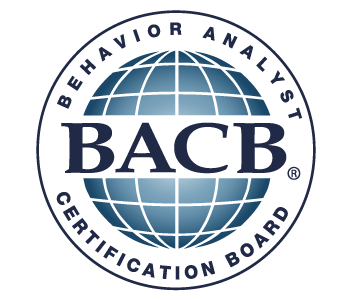Continuing Education Online
The Extended Campus offers non-credit online courses and certificate programs to help you advance your career, pivot to a new vocation or simply for personal enrichment. Courses are available in health care, business and management, technology, cybersecurity, criminal justice, and many other exciting, high-demand employment fields. Get the education and transferable skills you need wherever you are, whenever you want them. Enroll today and be on your way to a better, more secure job future.
Family Financial Planning Certificate
 Financial planning is a career in demand. At a time when many Americans are reaching retirement age and many others are entering the workforce, the need for personal financial planning expertise is greater than ever. The U.S. Bureau of Labor Statistics projects employment for financial advisors to grow by 11,600 jobs through 2029.
Financial planning is a career in demand. At a time when many Americans are reaching retirement age and many others are entering the workforce, the need for personal financial planning expertise is greater than ever. The U.S. Bureau of Labor Statistics projects employment for financial advisors to grow by 11,600 jobs through 2029.
This program will prepare you for a career as a financial planner, investment advisor or wealth manager. Financial planners offer families and individuals the advice they need to make their money work for them. Students take online courses in financial planning, insurance planning, income tax planning, investment planning, estate planning and retirement planning, as well as a capstone course to provide real-world applications, all with a focus on families and individuals.
Apply and pay the application fee today.
Health Ed Today
 Our online Health Ed Today non-credit certification courses provide entry-level training for an array of today's fastest-growing medical fields. Programs can be completed in 2 to 6 months, and some are available in Spanish. All are mobile-ready, feature 24/7 learner support, and include all textbooks and material. Some programs offer an optional volunteer clinical externship opportunity with a local employer in your community, and laptop access is available for students without a suitable device.
Our online Health Ed Today non-credit certification courses provide entry-level training for an array of today's fastest-growing medical fields. Programs can be completed in 2 to 6 months, and some are available in Spanish. All are mobile-ready, feature 24/7 learner support, and include all textbooks and material. Some programs offer an optional volunteer clinical externship opportunity with a local employer in your community, and laptop access is available for students without a suitable device.
Explore our courses
Overview: Clinical medical assistants perform various clinical tasks, including assisting with minor procedures and testing, administering medicine, performing EKGs, collecting laboratory specimens, and educating patients. Job opportunities are prevalent in many health care settings, such as physician’s offices, chiropractor’s offices, hospitals and clinics.
Length: 4-6 months
Cost: $2,599
Educational requirement: High school diploma or GED
Find out more and enroll
Length: 4-6 months
Cost: $1,299
Educational requirement: High school diploma or GED
Find out more and enroll
Length: 4-6 months
Cost: $1,299
Educational requirement: High school diploma or GED
Find out more and enroll
Length: 2-4 months
Cost: $1,299
Educational requirement: High school diploma or GED
Find out more and enroll
Length: 4-6 months
Cost: $1,299
Educational requirement: High school diploma or GED
Find out more and enroll
Overview: The job market for medical assistants is expected to grow 34% by 2024 because of the complexity and expansion of the U.S. health care system. This program will give you a well-rounded introduction to medical administration, enabling you to function effectively in many administrative and clerical positions in the health care industry. You will learn aspects of medical ethics and law, basics of insurance billing and coding, telephone techniques, appointment scheduling, and management of medical records and practice finances.
Length: 4-6 months
Cost: $1,299
Educational requirement: High school diploma or GED
Find out more and enroll
Overview: Medical billing and coding is one of the health care industry’s fastest-growing careers, with substantial need for professionals who understand how to code complex health care services and procedures for reimbursement of third-party insurance claims. This is a vital skill in most health care settings, including physician’s and chiropractor’s offices, hospitals, pharmacies, long-term care facilities, and physical therapy practices.
Length: 4-6 months
Cost: $1,799
Educational requirement: High school diploma or GED
Find out more and enroll
Length: 2-4 months
Cost: $1,299
Educational requirement: High school diploma or GED
Find out more and enroll
Overview: The phlebotomist’s main job function is to obtain blood specimens from patients, a vital component of care in hospitals, clinics and physician’s offices. Industry experts predict a 15% increase in phlebotomy jobs by 2024, driven by the complexity of U.S. health care services and the risks of infectious disease. This program will familiarize you with all aspects of blood collection, including medical terminology, related anatomy and physiology, precautions involved when collecting specimens from special populations, and legal, ethical and regulatory issues.
Length: 2-4 months
Cost: $1,299
Educational requirement: High school diploma or GED
Find out more and enroll
Length: 4-6 months
Cost: $1,899
Educational requirement: High school diploma or GED
Find out more and enroll
Program Description:
Applied behavior analysis (ABA) is a science that uses the principles of learning and motivation to solve behavior problems in children, adults, and seniors. A behavior technician is a paraprofessional who assists in delivering behavior-analytic services and practice under the direction and close supervision of a bachelor, master, or PhD-level certified behavior analyst. Behavior technicians work directly with the learners, implementing the designed plan for behavior management. Behavior analysis aims to improve the quality of life of the clients/patients and their families.Program Objectives:
After completing this program, learners will be able to:
- Discuss the role and duties of the behavior technician in the service-delivery system.
- Discuss the various settings in which a behavior technician might work.
- Identify typical cognitive, linguistic, physical, social, and emotional stages.
- Discuss multiculturalism and Diversity issues in the field of applied behavior analysis.
- Identify strategies for maintaining currency in behavior technician skills and concepts.
- Properly prepare for data collection per facility protocols.
- Properly implement continuous and discontinuous measurement procedures.
- Properly implement permanent-product recording procedures.
- Efficiently and accurately enter data and update visual data representation using software commonly used in the workplace.
- Accurately describe behavior and environment in observable and measurable terms.
- Conduct preference assessments.
- Assist with various assessment procedures as directed by practitioner.
- Explain the purpose for and components of a written skill acquisition plan.
- Explain how to properly prepare for a session as required by the skill acquisition plan.
- Explain the proper use of contingencies of reinforcement.
- Explain and effectively implement discrete-trial and naturalistic teaching procedures.
- Explain and effectively implement discrimination training.
- Explain and effectively implement stimulus control transfer procedures.
- Explain and effectively implement prompt and prompt fading procedures.
- Explain and effectively implement generalization and maintenance procedures.
- Explain and effectively implement shaping procedures.
- Explain and effectively implement token economy procedures.
- Identify the essential components of a written behavior reduction plan.
- Describe standard functions of behavior.
- Explain and implement interventions based on various modifications of antecedents.
- Explain and implement various differential reinforcement procedures.
- Explain and implement extinction procedures.
- Explain and implement crisis/emergency procedures according to a facility’s protocol.
- Discuss practical communication skills and characteristics that are expected in the workplace.
- Explain how to report variables that might affect a client.
- Create objective session notes for service verification.
Cost: $1,999
Educational requirement: High school diploma or GED
Find out more and enroll
Certification Opportunities
After completing this program, learners can take the leading national/industry-recognized certification exam(s) essential to entry-level employment in this fast-growing field.
 |
Behavior Analyst Certificate Board (BACB) Registered Behavior Technician (RBT) |
Optional Volunteer Externship Opportunity
Learners who complete this program are eligible to participate in an optional volunteer externship opportunity with a local company/agency/organization whose work aligns with this study area to gain valuable hands-on experience. As learners progress through their eLearning program, an Externship Coordinator will reach out to coordinate placement.
Note: Additional documentation, including health records, immunizations, drug screening, criminal background checks, etc., may be required by the externship facility.
JER Online
 N.C. A&T has also partnered with JER Online to provide affordable continuing education and non-credit certification courses in a wide variety of in-demand fields. These programs can satisfy the need for critical training to keep your job skills up to date in today's rapidly changing business world.
N.C. A&T has also partnered with JER Online to provide affordable continuing education and non-credit certification courses in a wide variety of in-demand fields. These programs can satisfy the need for critical training to keep your job skills up to date in today's rapidly changing business world.
JER Online specializes in career-track instruction and offers more than 650 non-credit certificates in subjects that include cybersecurity, medical and dental care, information technology, marketing and sales, project management, paralegal, computer networks and programming, social media, supply management, websites, and writing.
Our programs feature high-quality, instructor-led and self-directed online courses and certificates. Learn what you need, where you are, and when it works for you.
Phone: 336-334-7810 | Toll free: 1-888-323-6237 | Email: extendedcampus@ncat.edu or whitep@ncat.edu


